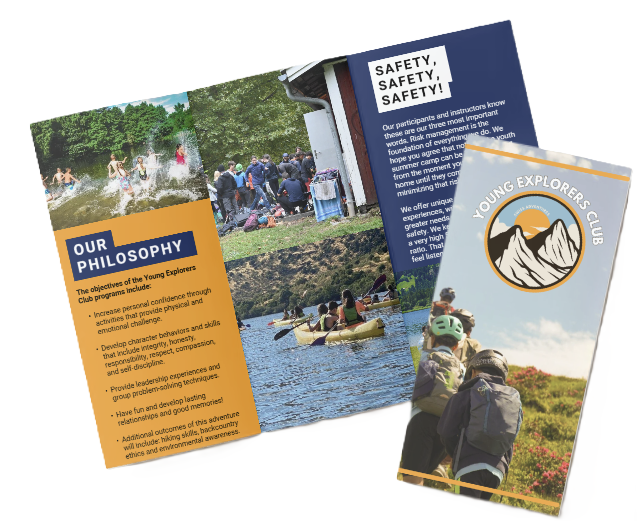Eco Travel: A Guide to Sustainable and Responsible Tourism
Introduction Eco travel, also known as sustainable tourism, is a growing trend among travelers who want to explore the world responsibly. This approach focuses on minimizing environmental impact, supporting local communities, and preserving cultural heritage. Traveling often comes at the cost of the environment, but there are many ways to reduce the impact. In this…
Introduction
Eco travel, also known as sustainable tourism, is a growing trend among travelers who want to explore the world responsibly. This approach focuses on minimizing environmental impact, supporting local communities, and preserving cultural heritage. Traveling often comes at the cost of the environment, but there are many ways to reduce the impact. In this guide, we’ll explore the benefits of eco travel, top destinations, and practical tips for responsible tourism.
What is Eco Travel?
Eco travel refers to a sustainable way of exploring destinations while ensuring minimal harm to nature and local cultures. It includes practices such as:
- Staying in eco-friendly accommodations
- Reducing plastic waste and carbon footprints
- Supporting local businesses and communities
- Choosing ethical wildlife experiences
Why Choose Eco Travel?
Environmental Benefits
Traveling sustainably reduces pollution, conserves resources, and helps protect biodiversity. By staying in eco-lodges and using public transportation, travelers can lower their carbon emissions.
Cultural and Social Impact
Supporting local artisans, eating at family-owned restaurants, and respecting indigenous traditions contribute to the well-being of host communities. Sustainable tourism fosters cultural exchange while preventing exploitation.
Personal Enrichment
Eco travel offers deeper, more meaningful experiences. Immersing yourself in nature, participating in conservation programs, or learning about different cultures makes travel more rewarding.
Top Eco-Friendly Destinations
Switzerland
Switzerland is a leading destination for sustainable travel. The country is known for its pristine lakes, efficient public transport, and green-certified accommodations. Whether attending an international summer camp or exploring the Swiss Alps, there are plenty of eco-friendly options.
- Jungfraujoch: Take a scenic train ride instead of driving.
- Zermatt: A car-free village with breathtaking views.
- Swiss National Park: A well-preserved natural reserve with diverse wildlife.
Learn more about sustainable travel in Switzerland here.
Costa Rica
Costa Rica is a pioneer in eco-tourism, boasting rainforests, wildlife reserves, and eco-lodges. Visitors can enjoy zip-lining, wildlife watching, and volunteering for conservation projects.
Norway
Norway’s fjords and sustainable cities make it an excellent destination for responsible travelers. The country promotes electric transport, green hotels, and nature conservation initiatives.
How to Travel Sustainably
Choose Green Accommodations
Look for hotels with eco-certifications such as Green Key or EarthCheck. Many sustainable lodgings in Switzerland, for example, use renewable energy and locally sourced materials.
Use Public Transport
Switzerland’s efficient railway system is a great alternative to car rentals. The Swiss Travel Pass provides unlimited train, bus, and boat access, reducing emissions while offering scenic travel.
Minimize Waste
- Carry a reusable water bottle and shopping bag.
- Avoid single-use plastics.
- Dispose of waste properly and recycle whenever possible.
Support Local Businesses
Dining at locally owned restaurants and buying handcrafted souvenirs help sustain local economies and preserve traditional crafts.
Respect Nature and Wildlife
- Stay on marked trails when hiking.
- Avoid feeding or disturbing wildlife.
- Choose ethical wildlife experiences, avoiding places that exploit animals for entertainment.
Eco Travel for Families
Traveling sustainably with kids can be both fun and educational. Consider:
- Staying at eco-lodges that offer nature-based activities.
- Visiting national parks with guided eco-tours.
- Enrolling kids in an international summer camp focused on outdoor learning and sustainability.
FAQs
What are the best eco-friendly activities for travelers?
Hiking, wildlife watching, cycling, and cultural tours are great ways to explore a destination sustainably.
How can I find eco-friendly accommodations?
Look for hotels with eco-certifications or check platforms like Green Globe and EcoHotels for verified sustainable stays.
Is eco travel more expensive?
Not necessarily. Using public transport, staying in locally-owned guesthouses, and eating at small local restaurants can be more budget-friendly than mainstream tourism.
Conclusion
Eco travel is more than just a trend; it’s a way to experience the world responsibly while preserving it for future generations. Whether planning a summer camp in Switzerland, an international summer camp, or a family trip in Switzerland, making sustainable choices enhances your travel experience and benefits the planet.
To further explore eco-conscious travel options, check out the Swiss Tourism Board’s sustainability page.
The Young Explorers Club and Eco Travel
The Young Explorers Club acknowledges that as an international summer camp, many participants travel by plane, contributing to carbon emissions. To counterbalance this, the club actively integrates sustainability into its programs, emphasizing environmental education, carbon footprint awareness, and eco-friendly activities that inspire young explorers to become responsible global citizens.
By offering international summer camps that focus on nature conservation, environmental awareness, and hands-on ecological activities, the club ensures that young adventurers learn the value of responsible tourism. From exploring Switzerland’s scenic landscapes to participating in sustainability workshops, the Young Explorers Club integrates eco-conscious practices into every aspect of its programs. By choosing the club, families can be assured that their children are engaging in meaningful experiences that foster a deep appreciation for nature and responsible travel.


